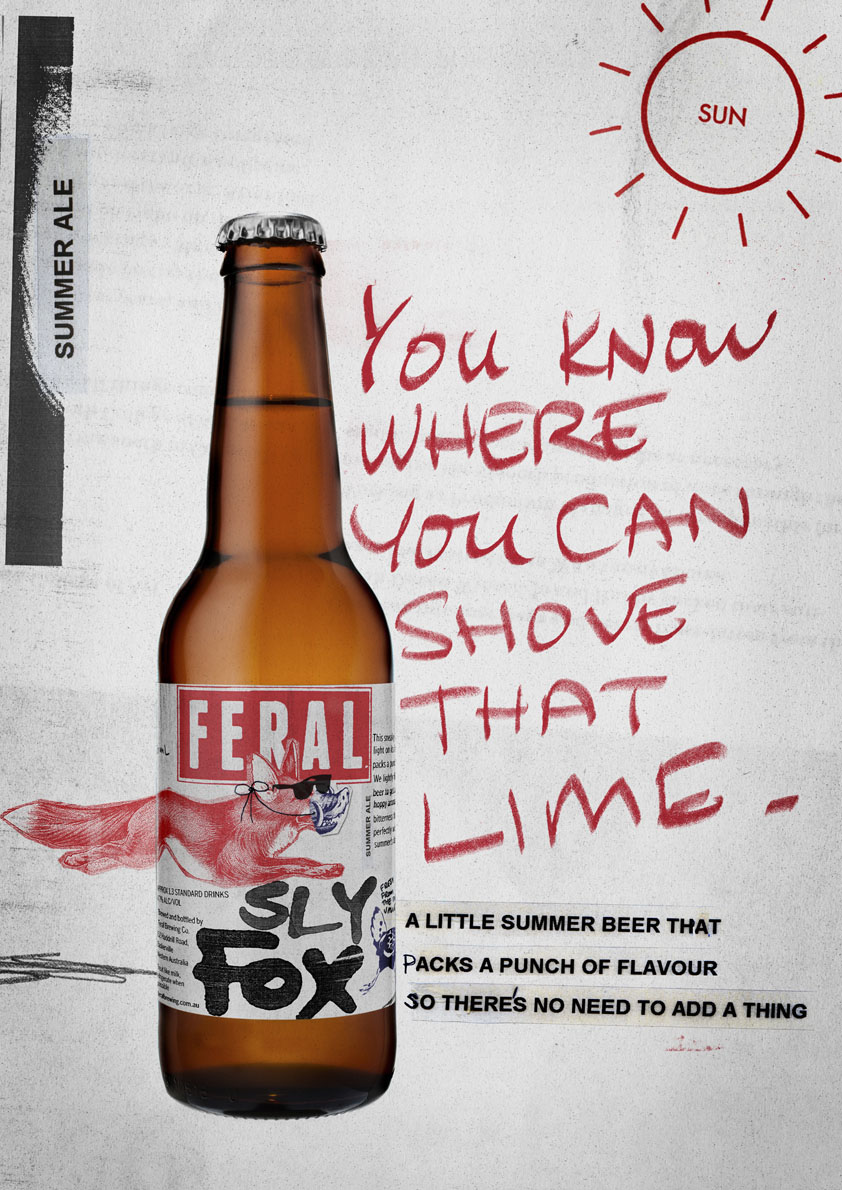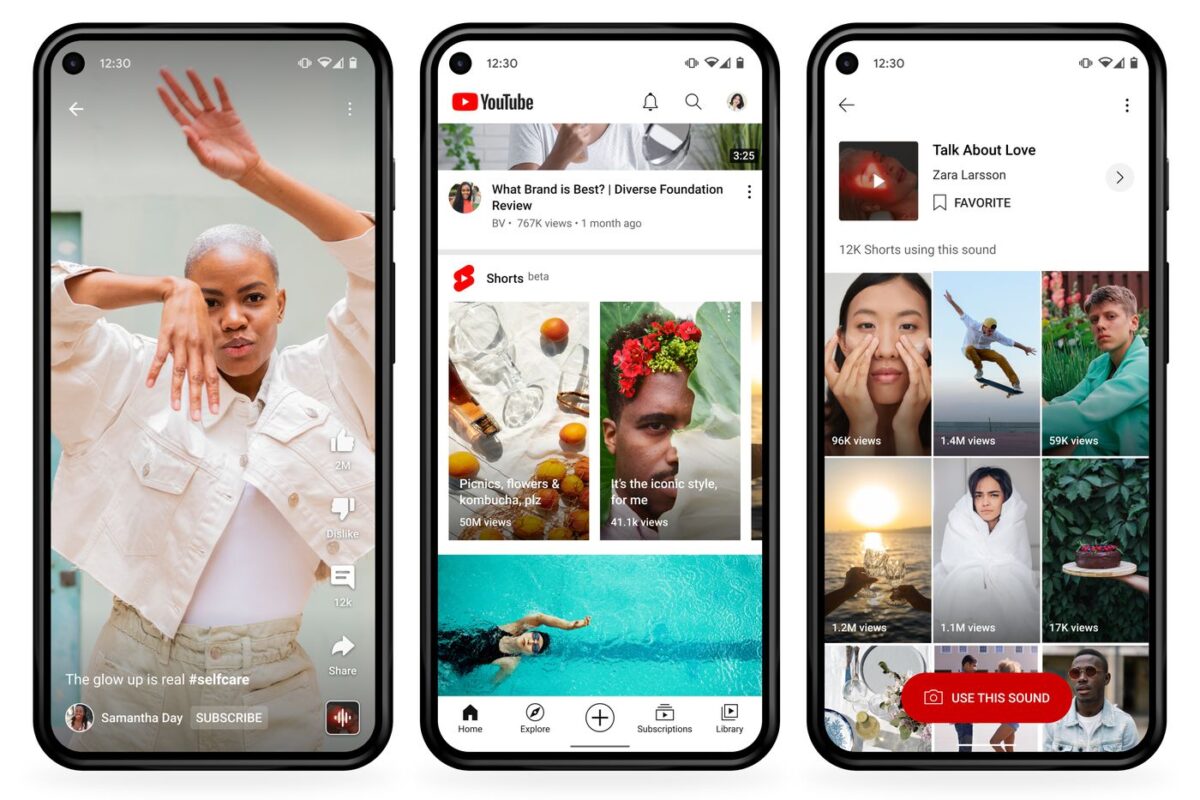2022 Marketing Predictions
2021 was all about recycled concepts in the marketing world. With so much uncertainty in our lives, it’s no wonder why we’ve chased familiar feelings. But going into the third year of the pandemic, people are ready for a change. That’s why we’re sure that 2022 marketing will be inspired by our desire to switch things up.
People are growing bored with the comfortable, safe approaches that have gained popularity over the last couple of years. We think the industry is ready to move past conventional thinking.
Forget about playing it safe with marketing. It’s time to get a little weird.
BRANDING
Anti-Design
Brands will disrupt the norm with experimental, punk-inspired designs.
We expect the 2022 marketing scene to reject traditional designs and challenge norms. Brands will push boundaries to the extreme, blurring the line between punk art and functional design. Anti-design is full of grunge energy and emotion, making it a perfect response to the orderly and antiseptic pandemic-driven lives we’ve been living.
Anti-design goes against traditional design concepts and is considered part of a cultural movement. This style is nonconformist and rebellious. It’s all about mess, chaos, and expression. Think Dada collages, Basquiat-inspired illustrations, handmade-looking pieces, and handwritten messages.
The last time we saw a resurgence of punk and grunge was the 90s, which came with a wave of changes to music and fashion. “It was almost like a societal complaint, if you will: everything was getting too clean,” said Chicago-based graphic designer Carlos Segura. Now, nearly 30 years later, we think creatives will respond to the sterile world we’ve endured.
Alex Pisalo of Art Diction describes this aesthetic as an “expression of societal disgust, working-class anger, frustration of living,” and rejection of the mainstream. That’s a sentiment that’s been bubbling up for the last couple of years, and we think it’s finally going to bubble over.
WEB DEVELOPMENT
Brutalism
Speaking of nonconformity, we predict it’s going to sneak its way into web design too. 2022 is the year Brutalism will help web designers make an impact. This style is characterized by harsh geometrics, lack of frills, and bold typography. However, it’s not to be confused with minimalism—Brutalism is much more utilitarian.
According to Aleksandar Igrosanac of Qode Magazine, “This is a nonconforming style that rebels against the established web design trends, and is known for the use of primary and web safe colors, gradients, and shadows.”
Expect to see designs that are drastically less polished than things you’ve seen in the past. That means fewer pictures, heavier swaths of color, hard lines, and oversized text. Brutalism uses a limited number of elements, which not only gives websites a raw look, but it’s also easier to load across various devices and more accessible.
“In its ruggedness and lack of concern to look comfortable or easy, Brutalism can be seen as a reaction by a younger generation to the lightness, optimism, and frivolity of today’s web design.”
- Brutalist Websites, a curated collection of digital Brutalism from around the world

SEO
Interactive Search
You.com’s customized search experience will encourage Google to explore interactive search features.
We have a hunch there’s about to be a big shakeup in SEO. New search engine You.com is an entirely new type of search engine that goes against Google’s basic principles. It sorts and compares results based on the apps the users want to interact with instead of a linear list of results.
“Our aim is to make your life easier by summarizing the web for you, eliminating the need to open multiple tabs. We’ll also allow you to define your preferred sources, and whenever possible, show you results from the sources you prefer first— saving you time.”
They compare multiple sources of information instead of relying on a singular answer. The search engine encourages the user to upvote the types of results they want to see more of and downvote the results that aren’t relevant to them. This method ultimately tailors the results to the user’s needs instead of directly delivering answers the way Google does.
You.com landed a $20 million investment and released its public beta at the end of 2021. Its functionality is still in the works, but we think its growing influence will cause Google to rework the way it displays search results. We expect Google to roll out customization features that prioritize preferences over its algorithm.
Currently, Google organizes search results using a growing list of rank factors to determine which websites are helpful and then order them sequentially. This ranking system can cause a disconnect between a user and the results they’re seeking. It’s what You.com sets out to fix, and we anticipate that Google’s developers will try to beat the new search engine to the best solution.
SOCIAL MEDIA
YouTube Shorts
Despite TikTok’s reign, YouTube Shorts will find popularity with niche creators with small audiences.
TikTok has kept an undeniable grip on the social media sphere since early 2020. But YouTube has officially entered the arena of 60-second video platforms. YouTube launched Shorts to the American audience in 2021 and immediately garnered criticism for its copycat style.
“At a glance, YouTube Shorts looks an awful lot like TikTok. Full-screen videos, vertical scrolling, likes and comments, the whole nine yards. YouTube doesn’t even try to deny it,” said David Pierce of Protocol, an online tech publication. Despite the criticism, we think YouTube Shorts will gain momentum with creators who don’t use TikTok or Instagram Reels.
We guess that in 2022, YouTube Shorts will gain massive popularity with obscure, niche creators with a narrower audience. We’re talking about special-interest YouTube channels with a smaller subscriber count. These are the YouTubers who already monetize their content but haven’t yet crossed the million-subscriber threshold.
They create content for the online communities that favor networks dubbed “anti-social media,” like Reddit or Tumblr. These channels focus on topics like specialized tech, a singular movie or video game genre, education, and other hyper-focused content. In other words, most YouTube Shorts creators will not use the typical lineup of social media apps, and neither will their viewers.



